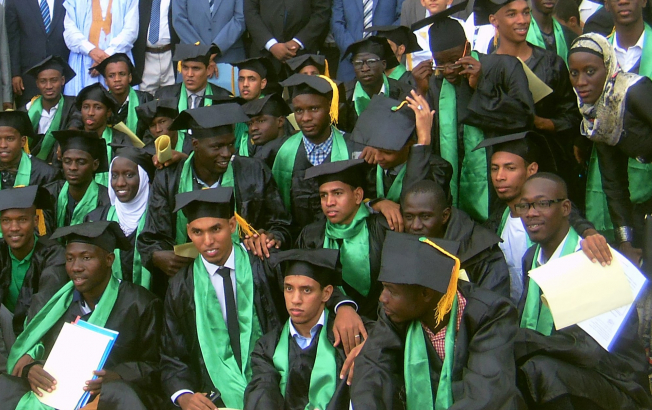Mauritania launches its higher education sector strategy with IIEP-UNESCO Dakar
Mauritania launched its Higher Education Sector Strategy 2030, developed through collaboration between IIEP-UNESCO Dakar and the Mauritanian Ministry of Higher Education and Scientific Research, in early February 2022.
The strategy focuses on increasing the share of higher education in the gross domestic product, increasing the allocations to the higher education sector, improving institutional governance and increasing the level of internal and external efficiency of the sector.
The Minister, Her Excellency Mrs. Amal Sidi Mohamed Cheikh Abdallahi, presided over the ceremony in the company of Koffi Segniagbeto, head of office, IIEP-UNESCO Dakar.
"The drafting of the higher education and research sub-sector’s strategy 2022-2025 in Mauritania is clearly a sign of strong political will of the government. This is all the more significant as, unlike what’s observed almost everywhere in the sub-region, the whole process is government-funded, with no external financial support, particularly from external partners. The government's leadership and the effective involvement of government officials at all stages of the process should also be acknowledged," said M. Segniagbeto.

